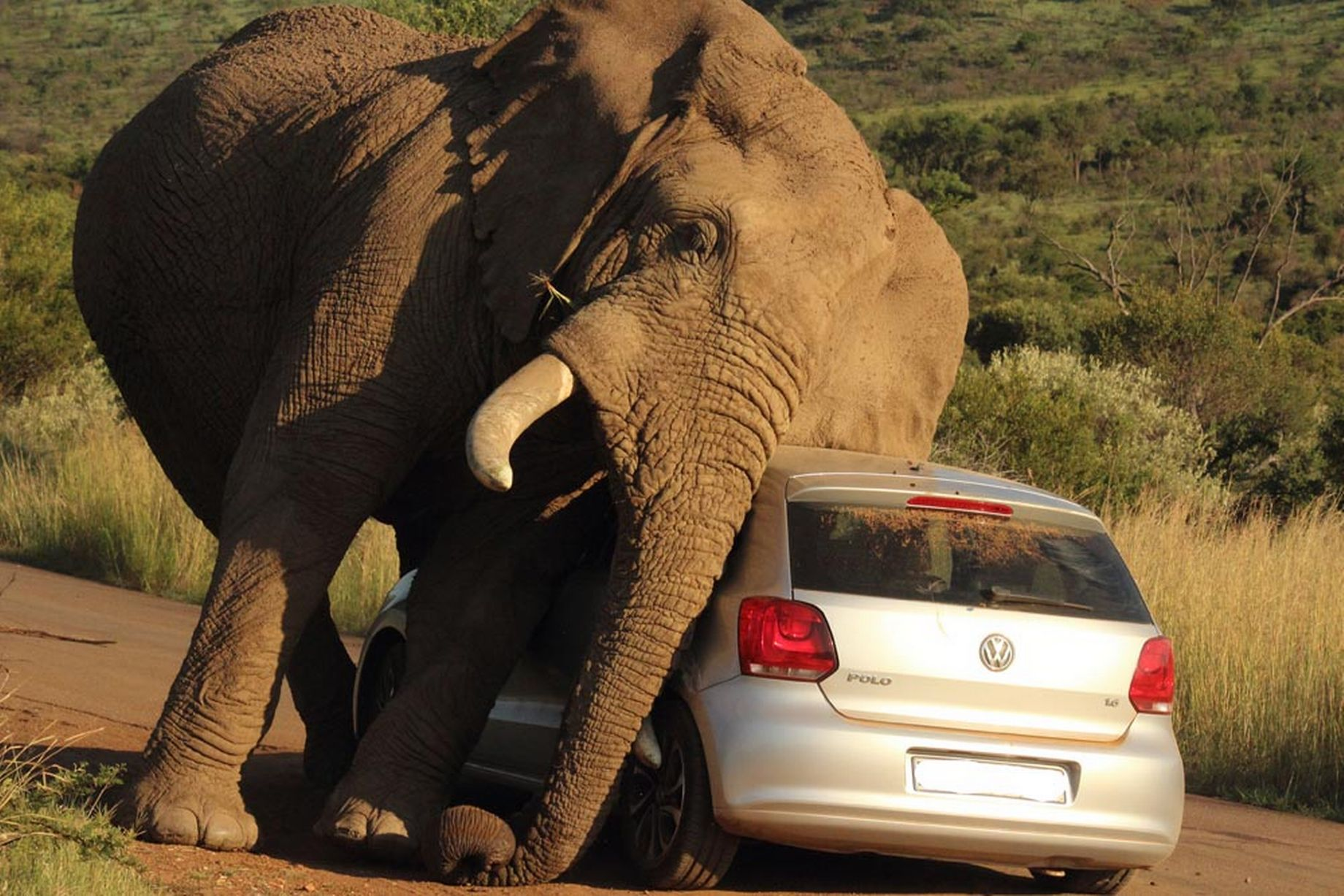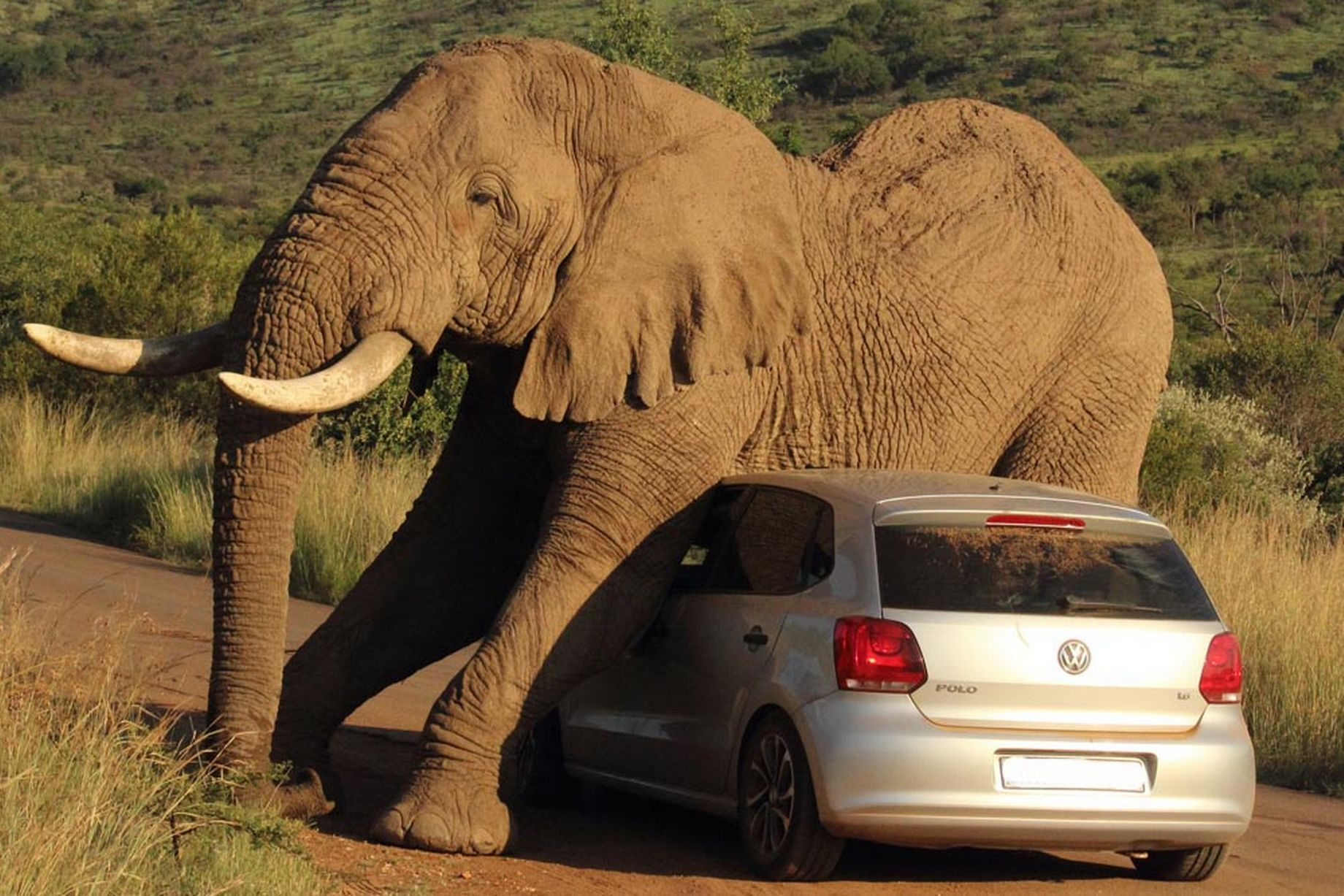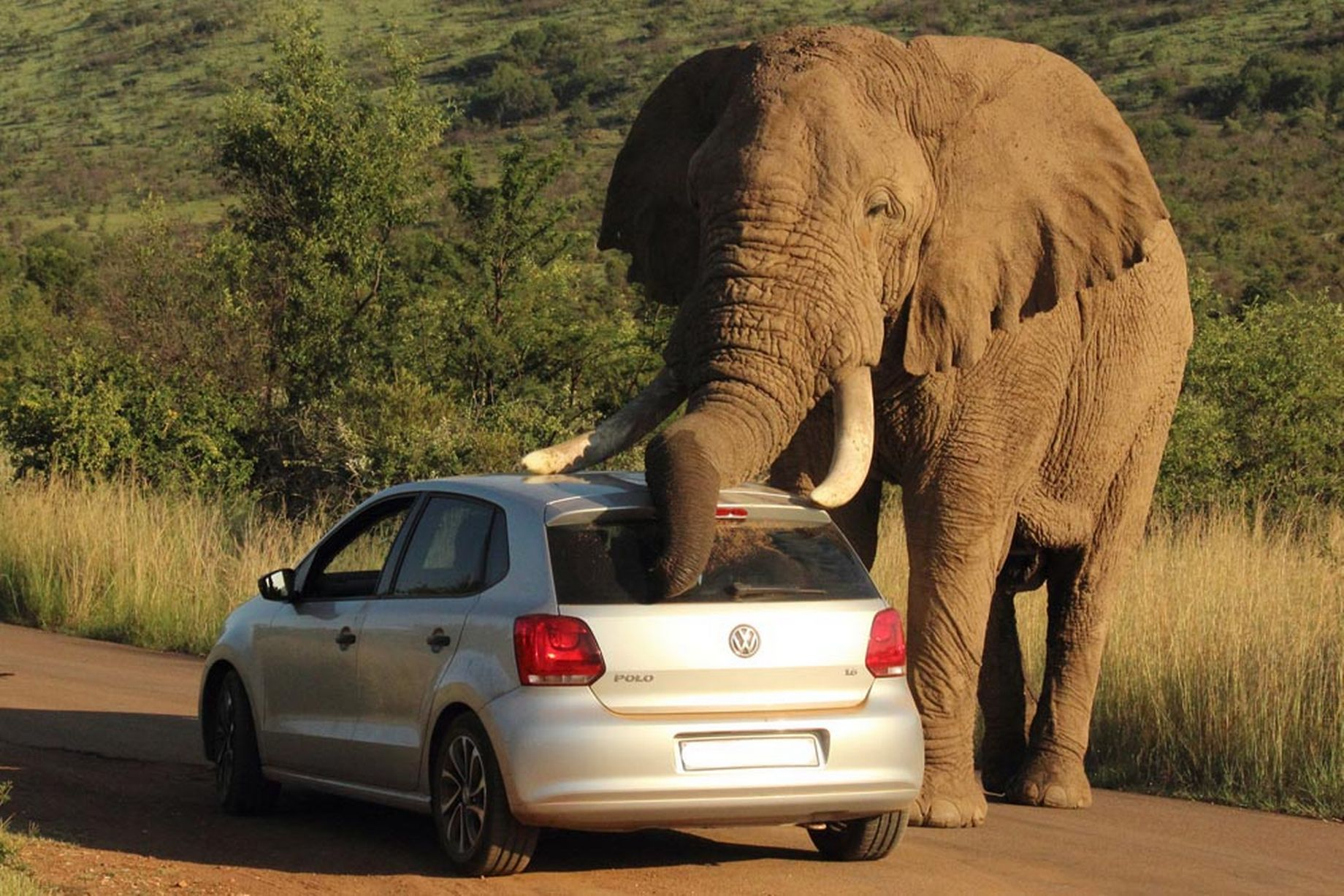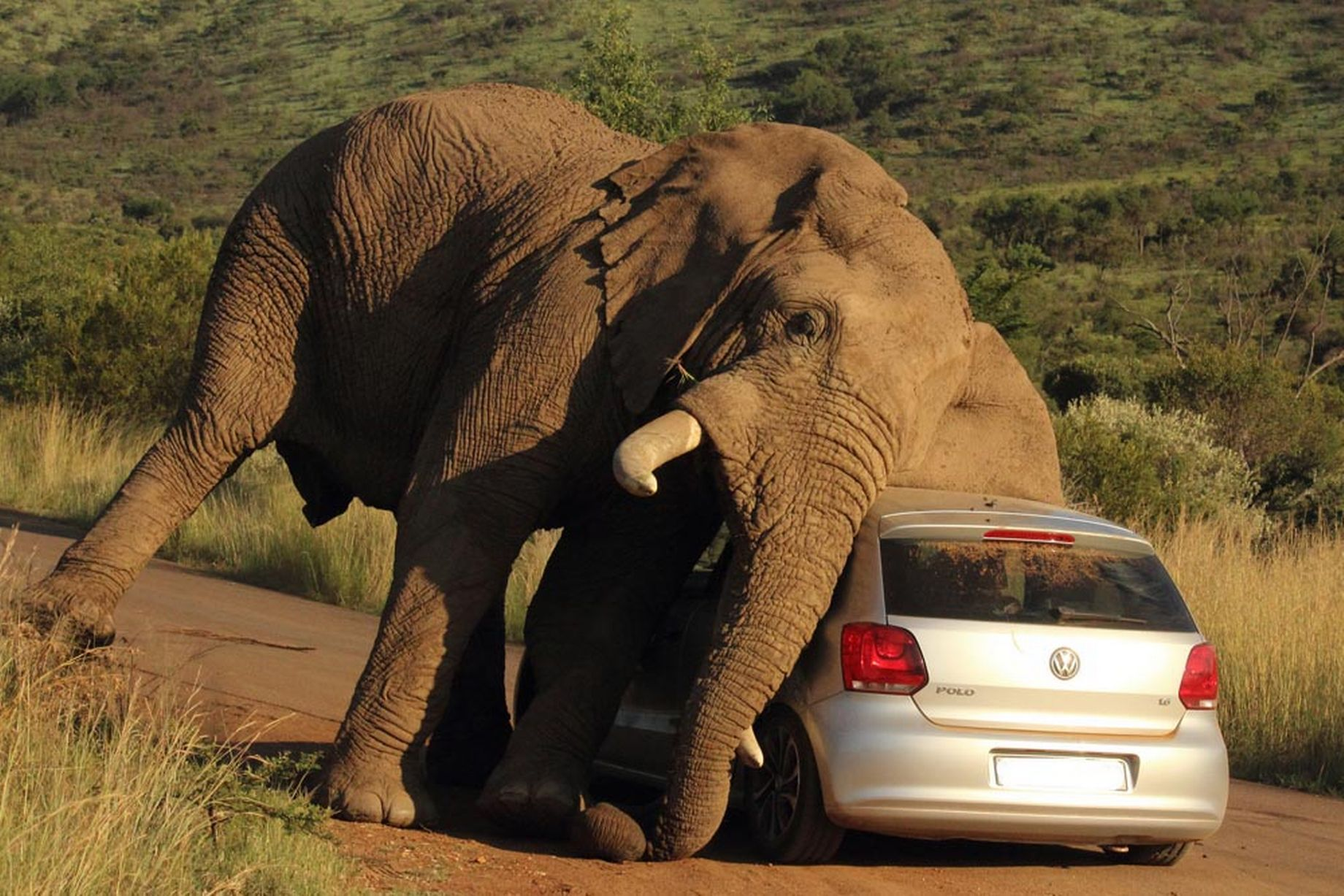In the heart of South Africa, a recent wildlife encounter left tourists in awe as a majestic elephant expressed its displeasure. Rather than fleeing in fear, these intrepid visitors chose to remain seated in their vehicles, capturing a rare and riveting moment in the animal kingdom.

The incident unfolded in a safari park, where a group of tourists found themselves in the midst of an unexpected display of temperament from one of the resident elephants. As the colossal creature grew visibly agitated, its ears flapping and trunk raised in a warning gesture, the tourists maintained a remarkable composure.
What sets this encounter apart is the stoic response of the tourists, who, despite the escalating tension, chose not to hastily retreat. Seated inside the safety of their safari vehicles, the visitors became spectators to the raw beauty and power of nature, showcasing a commendable respect for the wildlife that calls the South African landscape home.

The video footage capturing this interaction provides a gripping narrative as the elephant, a symbol of strength and majesty, expresses its displeasure. The tourists, armed with cameras and a sense of wonder, remained still, allowing the unfolding scene to become a testament to the unpredictable yet awe-inspiring nature of wildlife encounters.
Experts often emphasize the importance of responsible wildlife tourism, advocating for a non-intrusive approach that prioritizes the well-being and natural behaviors of animals. In this instance, the tourists demonstrated an admirable adherence to these principles, providing a model for respectful coexistence between humans and wildlife.

While the elephant’s momentary display of anger served as a reminder of the untamed essence of the animal kingdom, the tourists’ composed reaction showcased a harmonious balance between the thrill of adventure and a deep appreciation for the creatures they were there to observe.
As news of this incident spread across social media platforms, it sparked discussions on responsible tourism and the need for visitors to be mindful of their impact on the habitats they explore. The tourists’ decision to remain seated in the face of the elephant’s anger not only resulted in a captivating experience but also exemplified the importance of promoting wildlife conservation through responsible tourism practices.

In the end, this remarkable encounter serves as a vivid reminder that our shared planet is home to awe-inspiring creatures, each with its own temperament and unique behaviors. As travelers seek to connect with the natural world, stories like these underscore the significance of approaching such encounters with both excitement and respect, ensuring that the wonder of wildlife remains an enduring legacy for future generations.



